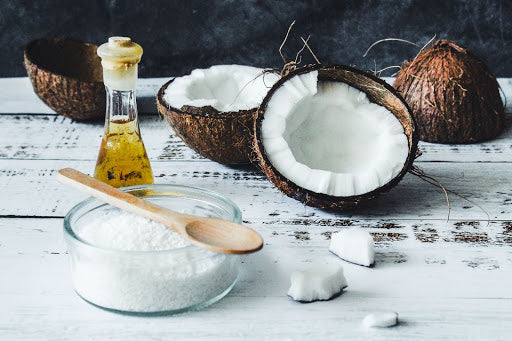Does Magnesium Help With Anxiety? Find Out Here
* Verified by a US-based board-certified doctor.
Do you suffer from an anxiety disorder? Or, do you occasionally feel anxious from time to time?
While it can feel like you’re completely alone when you’re anxious, the truth is, millions upon millions of people suffer from anxiety. Anxiety is the most common mental health disorder in the US. Almost 20% of the American population suffers from anxiety.
After being diagnosed with anxiety by your doctor, your next question is probably, “What’s next?” Because anxiety is so common, there are several treatment options available. Many people have turned to magnesium to treat their anxiety.
Does magnesium help with anxiety? Read on to find out.
Related: Natural Ways to Give Your Brain a Workout
What is Magnesium?
Magnesium is a mineral that’s crucial to your body functioning properly. Magnesium helps to keep your bones strong, regulate your blood pressure, and keep your heart rhythm steady, among other things. It is the fourth most common mineral in the human body after sodium, calcium, and potassium.
It’s recommended that females consume around 320 mg of magnesium per day, while males should consume around 420 mg of magnesium per day. Unfortunately, most people aren’t getting these recommended amounts of magnesium, as a recent study found that close to half of Americans are magnesium deficient.
You can increase your levels of magnesium through your diet, or you can take a magnesium supplement. Foods that are high in magnesium include:
- Avocados
- Nuts
- Dark chocolate
- Seeds
- Legumes
- Whole grains
- Fatty fish
- Leafy greens
- Bananas
Magnesium contributes to 300 plus enzyme reactions in the human body. An average adult body contains about 25 mg of magnesium, with almost half of the body’s magnesium being stored in the skeletal system.
In addition to improving bone health and blood pressure, magnesium can also help:
Improve Cardiovascular Health
One of the biggest benefits of magnesium is that it can help improve your cardiovascular health. Magnesium plays a key role in heart health, and a 2018 study found that low levels of magnesium are associated with an increased risk of cardiovascular problems.
Magnesium can also lower your risk of mortality after a heart attack, and it may lower your risk of suffering from a stroke.
Relieve Migraine Headaches

Another significant benefit of magnesium is that it can help relieve migraine headaches. A magnesium deficiency can affect the body’s neurotransmitters and lead to blood vessel constriction.
Scientists have found that when someone is experiencing a migraine, they’re more likely to experience lower magnesium levels in the brain. Taking a magnesium supplement can help relieve your migraine headaches.
Ease PMS Symptoms
As many as three in four women experience PMS symptoms at some point in their life. While PMS symptoms are mild for most women, it leaves others bedridden for days.
If you suffer from bad PMS symptoms, magnesium may be able to help. A 2012 study found that when taken with vitamin B6, magnesium can help relieve symptoms of PMS.
Are you wondering how to stop overthinking? Check out this guide to learn how to relax!
What is Anxiety?

Now that you have an understanding of magnesium, let’s talk about anxiety. Many people use the words anxiety and nervousness interchangeably, however, they’re not the same thing.
Everyone feels nervous from time to time, and some people even feel extremely anxious from time to time. However, feeling anxious and nervous does not necessarily mean you suffer from an anxiety disorder.
An anxiety disorder is characterized by the following symptoms:
- Feelings of restlessness or nervousness
- Feeling tense or agitated
- Sweating or trembling
- Rapid breathing
- Difficulty concentrating
- Trouble sleeping
- Trouble concentrating
- Uncontrollable worrying
- A strong urge to avoid certain situations that trigger anxiety
- Feeling tired or weak
It’s important to understand that there are five main types of disorders, and symptoms can vary from disorder to disorder. The five types of anxiety disorders include:
Generalized Anxiety: This type of anxiety is characterized by exaggerated feelings of worry or tension. Often, there is nothing or next to nothing to provoke the worrying.
Panic Disorder: This kind of anxiety disorder is characterized by repeated and intense episodes of fear. It often results in physical symptoms such as heart palpitations, chest pains, dizziness, and shortness of breath.
Obsessive-Compulsive Disorder: This type of anxiety is characterized by unwanted, recurrent thoughts and repetitive behaviors.
Post Traumatic Stress Disorder: PTSD is an anxiety disorder that typically develops after exposure to a traumatic event, such as a death or an assault.
Social Phobia: This is an overwhelming type of anxiety that causes excessive self-consciousness in everyday situations.
Related: Herbs for Anxiety: A Guide to Natural Anxiety Remedies
Can Magnesium Help With Anxiety?

So the question is, can magnesium help with anxiety? Many people have found magnesium beneficial for treating their anxiety disorders.
A systematic review from 2017 found that low levels of magnesium could be linked to high levels of anxiety. Scientists believe this is partly due to activity in the HPA axis, which is a triage of glands that controls a person’s stress reactions.
An increase in magnesium isn’t just linked to improving generalized anxiety disorders. Upping your magnesium intake can also help with pre-menstrual anxiety and post-traumatic anxiety.
Magnesium can also help combat depression.
Related: Natural Stress Solutions: A Complete Guide
Conclusion
If you’re looking to use magnesium to treat your anxiety, the next step is to find the right magnesium source. As we mentioned, certain foods contain high levels of magnesium. If you’re looking for a quick way to consume magnesium, you can also try a magnesium supplement.
We also suggest combining magnesium intake with other anxiety treatments, such as therapy, medication, exercise, and meditation.
Are you looking for more ways to ease your anxiety? Check out Magic Mind!
Do you want to do more with less stress?












